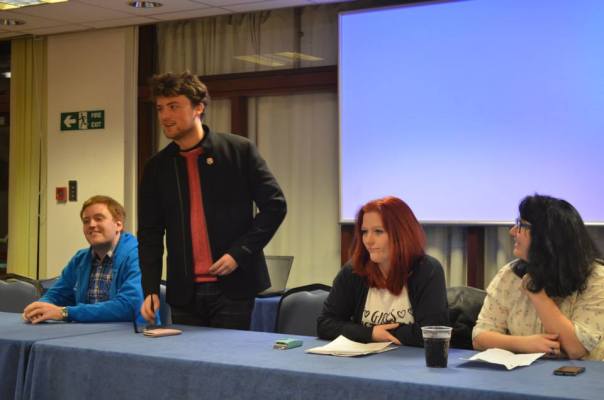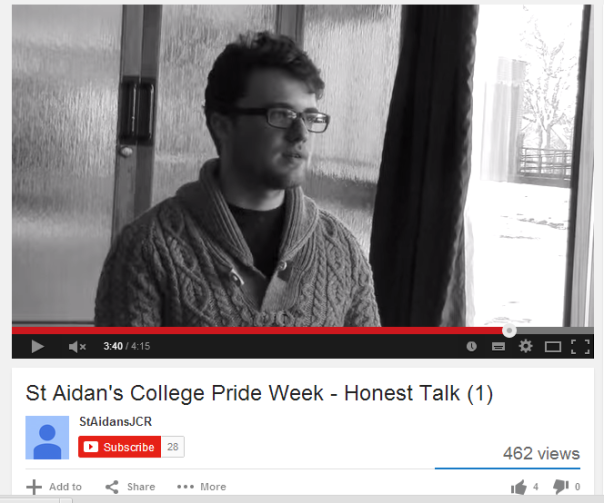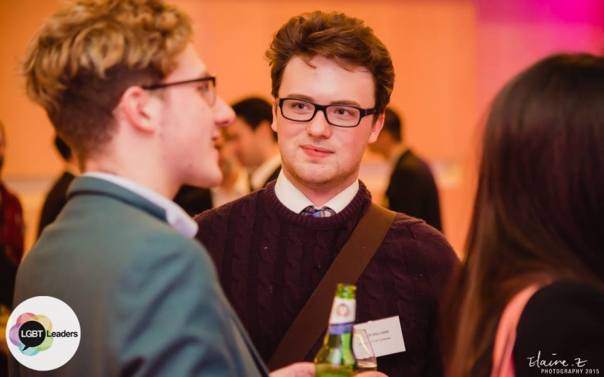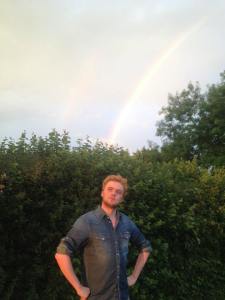I recently took part in an event called “Live Honest Talks” within my college at Durham University. It was an extension of “Honest Talks” which were two videos released during my college LGBT Pride Week”. The video featured myself and four other students talking about life in Durham as an LGBT student (and can both be found on YouTube by searching “St Aidan’s College Honest Talks”). The “Live Honest Talks” where the same five people (plus a new sixth member) on a panel who all spoke about a different LGBT themed topic. Again I was one of them and I chose to discuss something I have been thinking about a lot recently, how far our sexual identity influences our identity as a whole.

This whole issue is dominated by the conflict between the idea of being proud in your sexuality but also not letting it define you. While these two aren’t entirely contradictory, it is often hard to navigate the line between the two. A lot of people I have spoken to (mostly people my own age) seem to be of the view that their sexuality has minimal impact on their identity and focus on not letting their sexuality define them more than they would focus celebrating their LGBT* identity or being proud. While this is certainly not universal, it is certainly something I have noticed within my social circles. Before a few weeks ago I certainly used to agree with this. However I have recently revaluated my view on the matter and have started identifying much closer with the “queer movement” over the “pride movement”. The main difference between these two movements is the “pride movement” aims to reach equality through normalising LGBT* life whereas the queer movement aims to reach equality while also celebrating the LGBT community, and to maintain the LGBT identity. In the previously mentioned “Honest Talks” video, I even briefly mentioned that I didn’t think people knowing my identity is that important, however I now see everything a bit differently.

I do want equal rights and to not be seen as to inferior, but my bisexuality is a large part of my identity and does -to an extent- makes me different. When I say my bisexuality is a large part of my identity, I’m not referring to being attracted to males and females as being a large part of my identity, instead I’m referring to having to come out, experiencing bi-phobia, questioning who I am and eventually realising who I am. All od this had effected me and I have come to realise is that, in my opinion, sexual orientation has become more than who you want to have sex with. It now encapsulates entering a world of discrimination, being a part of a much larger community and having to come to terms with yourself. For example While my attraction to people didn’t affect my identity everything else about being bisexual and being a member of the much larger LGBT community has done. Not only has it made me (in a very cliché sense) stronger, but it’s pushed my academic work and my extra-curricular activities onto a completely separate path. As previously mentioned I am involved in my universities LGBT* community, I also now write about LGBT* issues, have attended LGBT* conferences and have chosen to focus my dissertation on queer theory and heteronormativity in my archaeology.

I recently attended a talk from Dr Jamie Lawson, a lecturer in the anthropology department in Durham University. In his talk he said that when he was younger he said he is an academic and his sexuality wasn’t important, but now his matured he thinks his sexuality is probably one the most important aspect of his identity as an academic. Hearing his talk is one of the main things that made me question my current views on this topic. Listening to him made me realise that a large part of the reason I used to think that my sexuality wasn’t important for my identity, was that I was scared of other people making this decision for me. I was scared that my identity would become so heavily influenced, not only by something I didn’t have a say in, but also something that was, in my head, so controversial. I was scared it would impact my future in ways out of my control, notably that if I applied for a job I would be either rejected for my sexuality or accepted only for my sexuality (so that the company can seem more diverse), and that my sexuality would over shine my other skills. As a result I fought the idea that it was a big part of me for a long time, it’s only now I am more confident in my sexuality that I’ve come to the conclusion it is a big part of my identity and decided that I present myself in such a way. A realisation that is probably quite obvious to most people (after all, I am writing this while wearing a “Love Durham Hate Homophobia” wrist band and rainbow laces). By no mean will I say it defines me, and by no mean do I suggest everyone should consider it a big part of their identity, as for many people it’s not. For me I have been heavily influenced by my experience as a member of the LGBT* community and I have been heavily effected by my status as a bisexual, so for me it is and what I think is the most important part of this argument is that the individual should have the choice of how far their identity is effected by their sexuality and it should not be decided by an exterior force.

